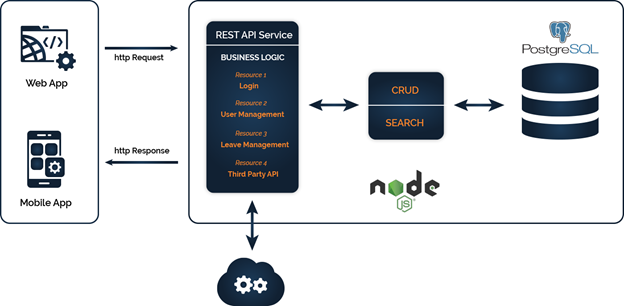Node.js is a powerful, open-source, server-side runtime
environment that allows developers to run JavaScript on
the server. It has revolutionized web development by
enabling the use of JavaScript across the entire
development stack. Here are some interesting facts about
Node.js:
1. Built on Google Chrome's V8 Engine
-
High Performance: Node.js is built on the V8
JavaScript engine, which was developed by Google for
use in Chrome. V8 compiles JavaScript directly to
native machine code, providing fast execution and
performance.
2. Asynchronous and Event-Driven
-
Non-Blocking I/O: Node.js uses an asynchronous,
non-blocking I/O model, which allows it to handle
multiple requests simultaneously without waiting for
previous operations to complete. This makes it highly
efficient for I/O-heavy tasks, such as handling API
requests or streaming data.
3. Single-Threaded with Event Loop
-
Concurrency Model: Despite being
single-threaded, Node.js can handle a large number of
concurrent connections thanks to its event loop. This
design avoids the overhead associated with traditional
multi-threaded systems.
4. NPM: Node Package Manager
-
Vast Ecosystem: Node.js comes with npm (Node
Package Manager), which is the largest package
ecosystem in the world. It provides access to a vast
number of reusable libraries and tools, making
development faster and easier.
5. Full-Stack JavaScript
-
JavaScript Everywhere: Node.js allows
developers to use JavaScript for both client-side and
server-side development, enabling a more seamless and
unified development experience. This has led to the
popularity of full-stack JavaScript frameworks like
MEAN and MERN.
6. Microservices and APIs
-
Scalable Architecture: Node.js is well-suited
for building microservices and APIs due to its
lightweight nature and ability to handle concurrent
connections. It’s often used to build RESTful APIs,
GraphQL services, and real-time applications.
7. Real-Time Applications
-
Real-Time Communication: Node.js is ideal for
building real-time applications such as chat
applications, gaming servers, and collaborative tools.
Its event-driven architecture supports real-time,
bidirectional communication using protocols like
WebSockets.
8. Used by Major Companies
-
Wide Adoption: Node.js is used by major
companies and platforms such as Netflix, LinkedIn,
PayPal, and Uber. These companies leverage Node.js for
its scalability, performance, and ability to handle
high loads.
9. Cross-Platform Support
-
Runs on Multiple OS: Node.js is cross-platform,
meaning it runs on various operating systems,
including Windows, macOS, and Linux. This makes it
versatile and accessible for developers working in
different environments.
10. Strong Community Support
-
Active Ecosystem: Node.js has a strong and
active community that contributes to its ecosystem.
This includes frequent updates, a wealth of tutorials
and documentation, and a thriving ecosystem of
open-source libraries and tools.


